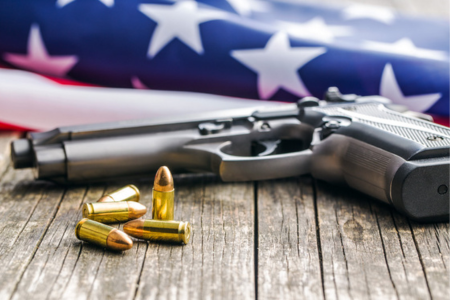Disclaimer: I am not an attorney. Nothing in this content constitutes legal advice. If you are in need of legal advice on this matter, retain a licensed, competent attorney in your relevant jurisdiction.
I recently hosted a U.S. Law Shield seminar in which the topic was “Interstate Transportation of Firearms”. The guest speaker was U.S. Law Shield’s primary program attorney for Pennsylvania. Law-abiding Pennsylvania gun owners will be hard pressed to find a better, more knowledgeable gun law attorney. As he is the program attorney, he has the cell phone numbers of every one of U.S. Law Shield’s state attorneys.
A question was presented by an attendee asking if there is any Pennsylvania law which prohibits concealed carry inside any establishment which serves alcohol. Fortunately, for Pennsylvania, no such law exists. This does not mean you can walk into a Pennsylvania bar while conceal carrying, get plastered, and start acting like Yosemite Sam.
However, this freedom Pennsylvanian’s have with regards to alcohol and guns is not the case in every state. Texas, for example, has a law on their books which states that if a business derives more than 51% of its annual revenues from alcohol sales, concealed carry is prohibited in those establishments. Examples of these types of establishments are easy to figure out. It is your run-of-the-mill bar, who may serve only munchies.

But what if the establishment is your neighborhood bar and grill, such as an Applebee’s, a Chili’s, or a TGIFriday’s, where the establishment makes money from both alcohol and food. Then the 51% distinction is not so clear cut. Now, you, as a law-abiding gun owner could, theoretically, go into one of these establishments, shake down the pimply-faced teenage manager and ask him to see the restaurant’s latest IRS 1040 tax return or demand to immediately see their CPA, but that probably will not get you very far.
So how is that distinction made known, so gun owners know whether or not they can carry into the establishment? Texas law states that any business which derives more than 51% of its revenues from the sale of alcohol must post a sign, written in both English and Spanish, in a door or window, plainly visible to patrons. Our program attorney euphemistically, called this the “Texas 51 Law“.



